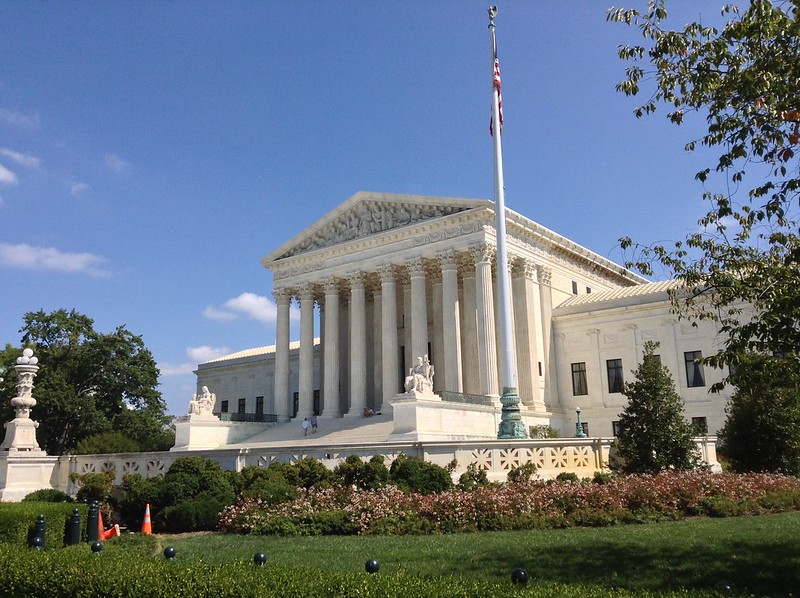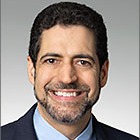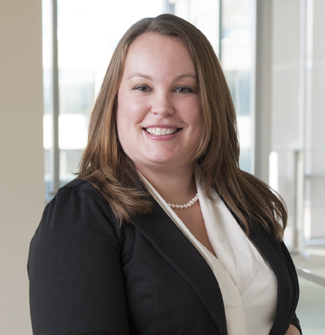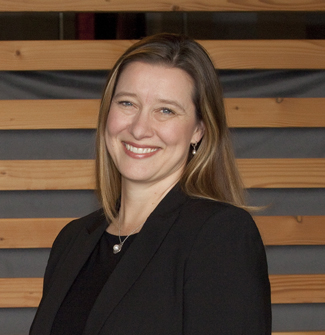The Federal Courts Begin to Adapt to COVID-19
How have federal courts adjusted to navigate the COVID-19 outbreak?

Published by The Lawfare Institute
in Cooperation With

In the United States, the outbreak of the novel coronavirus quickly transformed from a looming risk to a paralyzing pandemic. The Centers for Disease Control and Prevention has emphasized the need to engage in “social distancing” and avoid group settings in order to combat the spread of the virus. And every day, the announced restrictions imposed or suggested become more stringent.
Our courts are institutions long set in their ways. They are used to setting the rules and standards—and having others comply. The U.S. Supreme Court, for example, has remained open and has expected counsel to meet the court’s schedule for more than 100 years, through blizzards and times of national emergency and war. But on the morning of March 16, the court took the extraordinary step of canceling the March oral arguments, without offering a clear picture of when or how the cases will be heard.
Federal courts across the country are responding as well, but the reactions are varied. Most appellate courts are limiting or avoiding in-person hearings. Such in-person hearings can put the judges, staff, lawyers and parties at risk. But other than broadly canceling in-person hearings and arguments, the courts are still operating. Luckily, all federal courts use electronic filings. Courts accept briefs and filings electronically and can render decisions electronically as well. And some courts are offering oral arguments via video or telephone.
Here is a current breakdown of how the federal appellate courts and selected federal district courts have reacted to date (of course, given the evolving nature of courts’ individual responses to the outbreak, litigants and their counsel should always check with the current status of the courts in their cases):
U.S. Supreme Court: The U.S. Supreme Court has postponed oral arguments scheduled for the March session. The court’s announcement of the postponement cited precedent from the last similar postponements—delays prompted by the 1918 Spanish flu epidemic and the 18th-century yellow fever outbreak. The court will hold its regularly scheduled conference on March 20, though some, or perhaps all, of the justices will participate by telephone. The court says it will issue its regularly scheduled Order List on March 23 at 9:30 a.m. Filing deadlines are not automatically extended under Rule 30.1, but parties can file for more time where warranted.
Federal Circuit: The court’s administrative orders regarding the coronavirus outbreak do not “alter or extend any deadlines in any case.” Some cases scheduled for the April sitting are being removed from the argument calendar and will be submitted on the briefs. For cases still on the calendar, if counsel for either party is located outside the Washington, D.C., area, the argument will be conducted by telephone conference at the same date and time it was originally scheduled. For cases involving all-local counsel, the court plans to proceed for now with in-person argument as previously scheduled. Parties in all cases have been notified individually on how the court plans to proceed in their case.
D.C. Circuit: The D.C. Circuit has instructed attorneys to “exercise caution” in determining whether to enter the courthouse but otherwise has not departed from its normal course of business. All deadlines remain as scheduled, and no changes have been announced to the oral argument sessions currently scheduled for March, April and May.
First Circuit: Oral arguments scheduled for April 6-9 are canceled. All other deadlines remain as scheduled.
Second Circuit: All filing dates and other deadlines set out in the Federal Rules of Appellate Procedure, the court’s Local Rules and the court’s orders are extended or tolled by 21 days, effective through May 17. The due dates for a notice of appeal, petition for review or other document that confers jurisdiction on the court are not affected by this order.
For now, the regular argued appeals and motions calendars will be heard as scheduled. A lawyer or pro se litigant who is scheduled to argue and wishes to do so in person may appear at the Thurgood Marshall United States Courthouse, 40 Foley Square, New York. The court has established a teleconference platform for judges and persons scheduled to argue who wish to appear remotely. To arrange for an appearance by audio, a lawyer scheduled to argue is instructed to file a letter request electronically.
Third Circuit: The court has relaxed nonjurisdictional deadlines by three days. For now, oral arguments will continue as scheduled pending further order of the court. The merits panel will determine the manner of argument. Parties may file a motion requesting to appear by audio conference.
Fourth Circuit: Cases previously scheduled for argument during the March 17-20 and April 7 argument sessions will be heard at a later session, heard by teleconference or videoconference, or submitted on the briefs, at the direction of the assigned panels. All other deadlines remain as scheduled.
Fifth Circuit: The court has canceled in-person oral arguments scheduled for March 30-April 2. The clerk’s office staff will personally contact counsel and discuss individual cases, including possible telephonic argument for cases that the panels determine require argument. All other deadlines remain as scheduled.
Sixth Circuit: Oral arguments scheduled to take place March 17-20 have been postponed. All other deadlines remain as scheduled.
Seventh Circuit: Counsel may request that any appearance be by video or speakerphone by contacting the clerk’s office no later than one week before the scheduled appearance. All FRAP Rule 33 mediations will be conducted by telephone until further notice. All other deadlines remain as scheduled.
Eighth Circuit: The Eighth Circuit has restricted access to the courthouse, but court operations are otherwise unchanged. All deadlines remain as scheduled. No changes have yet been announced to the oral argument sessions calendared for April 13-17.
Ninth Circuit: The court postponed the March en banc oral arguments. Other oral arguments currently scheduled in March, April and May are being evaluated one at a time. Orders will issue in those cases giving direction to the parties. Panels may exercise their discretion under the rules to submit cases without argument, to postpone argument to a later date, or to hold argument via telephone or video. When arguments are held, they will be livestreamed to facilitate public access.
The court will extend nonjurisdictional filing dates as needed; parties may request an automatic 60-day extension of any briefing deadline by following the procedure outlined here. Due dates for notices of appeal, petitions for review, and any document that confers jurisdiction on this court are set by statute or rule and are unaffected by this notice. The court will issue instructions for seeking extensions of other types of nonjurisdictional deadlines in the coming days.
Tenth Circuit: The Tenth Circuit has closed its courthouse to the public and suspended paper copy requirements for all filings. All other deadlines remain as scheduled. No changes have yet been made to the oral argument sessions calendared for April 30 or May 5-7.
Eleventh Circuit: The Eleventh Circuit has closed its courthouse to the public and suspended paper copy requirements. All other deadlines remain as scheduled. No changes have yet been made to the oral argument sessions calendared for March 30-April 3.
C.D. Cal: All jury trials scheduled to begin before April 13 are continued. All courtroom proceedings and filing deadlines will remain in place unless otherwise ordered by the presiding judge. Individual judges may continue to hold hearings, conferences and bench trials in the exercise of their discretion.
Criminal matters before magistrate judges—such as initial appearances, arraignments, detention hearings and the issuance of search warrants—shall continue to take place in the ordinary course. Grand juries shall continue to meet pending further order of the court.
E.D. Cal: All jury trials scheduled to begin before May 1 are continued. All courtroom proceedings and filing deadlines in a case will remain in place unless otherwise ordered by the judge presiding over that case. Individual judges may continue to hold hearings, conferences and bench trials in the exercise of their discretion, including by teleconference or videoconference.
Criminal matters before magistrate judges—such as initial appearances, arraignments, detention hearings and the issuance of search warrants—shall continue to take place in the ordinary course, subject to the parties’ established ability to seek continuances or, as allowed by law, the holding of telephonic or videoconference appearances.
N.D. Cal: All jury trials scheduled to begin before May 1 are continued. All civil matters will be decided on the papers, or if the assigned judge believes a hearing is necessary, the hearing will be by telephone or videoconference.
Initial appearances and other criminal proceedings before magistrate judges will continue but will be consolidated, and will be conducted by telephone or videoconference to the extent possible. All grand jury proceedings are suspended until May 1.
S.D. Cal: The Southern District of California has restricted visitor access to all courthouses and probation and pretrial services offices in the district. At this time, there are no changes to normal court operations.
D. Del.: The District of Delaware has restricted access to its courthouse and suspended its paper copy requirement. At this time, there are no changes to normal court operations.
D.D.C.: All trials scheduled to begin before May 11 are continued. All other civil, criminal and bankruptcy proceedings scheduled to occur between March 17 and April 17 are continued. The criminal duty magistrate judge will continue to conduct proceedings, including initial appearances in this court following arrest and detention hearings, as necessary, using videoconference capabilities for detained defendants when feasible. The 30-day time period for filing an indictment is tolled from March 17 through April 17.
D. Mass.: All jury trials scheduled to begin before April 27 are continued. Individual judges may continue to hold hearings, conferences and bench trials in the exercise of their discretion, by telephone or video conferencing where practicable. All regularly scheduled grand jury proceedings are continued to April 27. The U.S. attorney may schedule grand jury proceedings for emergency or essential matters.
The court will continue to hold criminal proceedings where personal liberty and/or public safety issues are immediately implicated. All other criminal proceedings, subject to certain exceptions as set forth below, will be continued for 60 days. All initial appearances, arraignments and detention hearings will proceed in the ordinary course. That said, they shall be conducted by videoconference unless a defendant files a specific objection.
All existing pretrial deadlines, hearings on criminal motions, proceedings on possible revocation of probation or supervised release, proceedings to change a plea, and sentencing hearings are extended 60 days, unless otherwise directed by the presiding judicial officer. All proceedings conducted within the 60-day window will be conducted by videoconference or telephone where feasible.
E.D.N.Y.: All jury trials scheduled to begin before April 27 are continued. Compliance with all trial-specific deadlines in civil and criminal cases scheduled to begin before April 27 is at the discretion of the assigned judge. Jury trials that began prior to March 16 shall proceed as scheduled.
Individual judges may continue to hold hearings, conferences and bench trials in the exercise of their discretion, by telephone or video conferencing where practicable. Alternatively, judges may also adjourn matters or deadlines, or stay litigation, where in-person meetings, interviews, depositions or travel would be necessary to prepare for any such proceedings.
Initial appearances and arraignments shall continue to take place in the ordinary course or, where practicable or necessary, be conducted remotely pursuant to procedures established by the court. Detention and bail review proceedings shall be scheduled with the approval of the assigned district judge or duty magistrate judge.
N.D.N.Y.: All jury trials scheduled to begin before April 30 are continued. Case-by-case exceptions to the postponements may be ordered at the discretion of the court after consultation with counsel.
Criminal matters before magistrate judges, such as initial appearances, arraignments, detention hearings (and appeals to district judges from detention orders) and the issuance of search warrants, shall continue to take place in the ordinary course.
S.D.N.Y.: All jury trials scheduled to begin before April 27 are continued. Compliance with all trial-specific deadlines in civil and criminal cases scheduled to begin before April 27 is at the discretion of the presiding judge. Jury trials that began prior to March 16 shall proceed as scheduled.
Existing grand juries will continue in operation.
Individual judges may continue to hold hearings, conferences and bench trials in the exercise of their discretion, consistent with this order. Judges are strongly encouraged to conduct court proceedings by telephone or video conferencing where practicable. Criminal matters before magistrate judges, such as initial appearances, arraignments, detention hearings and the issuance of search warrants, shall continue to take place in the ordinary course.
W.D.N.Y.: All civil jury trials are continued for a period of 60 days. All grand jury selections are continued for a period of 60 days. For all other proceedings (criminal and civil), judges are encouraged to reduce personal appearances as much as practicable. A judge may adjourn criminal proceedings for a period of 60 days.
D. Or.: All jury trials and grand jury proceedings scheduled to begin before April 26 are continued. Unless otherwise ordered by the presiding judge, all other civil and criminal matters scheduled for an in-court appearance before April 26—including any associated deadlines—are continued, unless all parties and the presiding judge agree to resolve the matters without oral argument, or via telephone or videoconferencing where practical. Case-by-case exceptions to the continuances provided herein may be ordered for nonjury matters by the presiding judge after consultation with counsel.
E.D. Tex.: All jury trials scheduled to begin before May 1 are continued. Those continuances do not continue any pending deadlines other than the trial dates.
The currently scheduled session of the district grand jury to be held in Tyler, Texas, on March 18 shall proceed as scheduled and shall conclude prior to the end of March 19. All other grand jury proceedings through May 1 are continued. All related deadlines are suspended and tolled for all purposes, including the statute of limitations through May 1.
Individual judges retain discretion to hold other in-court proceedings; counsel may request that such proceedings be conducted via telephone or videoconference, but the court is not bound by party or counsel policies regarding travel restrictions.
Magistrate judges will continue to preside over criminal matters, such as initial appearances, arraignments, detention hearings and the issuance of warrants.
N.D. Tex.: All bench and jury trials scheduled to begin before May 1 are continued. Those continuances do not continue any pending deadlines other than the trial dates.
All grand jury proceedings through May 1 are continued. All deadlines are suspended and tolled for all purposes, including the statute of limitations, through May 1.
Individual judges may continue to hold in-person hearings, sentencing proceedings, and conferences, but counsel may seek relief from those matters by appropriate motions. The parties are encouraged to seek to participate in nonsentencing hearings and conferences by telephone or videoconferencing.
Magistrate judges will continue to preside over criminal matters—such as initial appearances, arraignments and detention hearings—and the issuance of warrants. However, all hearings for the Proactive Approach for Successful Supervision (PASS) Re-entry Court scheduled through May 1 are canceled.
S.D. Tex.: Civil jury trials are suspended in the Houston and Galveston Divisions until April 1. Otherwise, all matters scheduled for an in-court appearance before a district, bankruptcy or magistrate judge in the district, including associated deadlines, remain in effect, pending order of the presiding judge. Bankruptcy court hearings remain as scheduled.
W.D. Tex.: All bench and jury trials scheduled to begin prior to May 1 are continued. Those continuances do not continue any pending deadlines other than the trial dates.
All grand jury proceedings through May 1 are continued. All deadlines are suspended and tolled for all purposes, including the statute of limitations, through May 1. The U.S. attorney may schedule grand jury proceedings for emergency or essential matters.
Individual judges may continue to hold in-person hearings, sentencing proceedings and conferences, but counsel may seek relief from those matters by appropriate motions. The parties are encouraged to seek to participate in nonsentencing hearings and conferences by telephone or videoconferencing.
Magistrate judges will continue to preside over criminal matters—such as initial appearances, arraignments and detention hearings—and the issuance of warrants.
E.D. Wash.: All naturalization ceremonies scheduled for the remainder of March and April have been canceled. At this time, there are otherwise no changes to normal court operations.
W.D. Wash.: All civil and criminal hearings and trial dates scheduled to occur before June 1 are continued. The court may proceed with video/telephonic conferences as appropriate and at the discretion of individual judges. Scheduling orders in cases may need to be amended as appropriate on a case-by-case basis
All grand jury proceedings scheduled before June 1 are continued.
All criminal initial appearances and detention hearings will be conducted via video/telephone conference with the defendant’s permission, unless directed otherwise by the court.
Individual judges may continue to conduct emergency matters in the Seattle and Tacoma courthouses if necessary.






